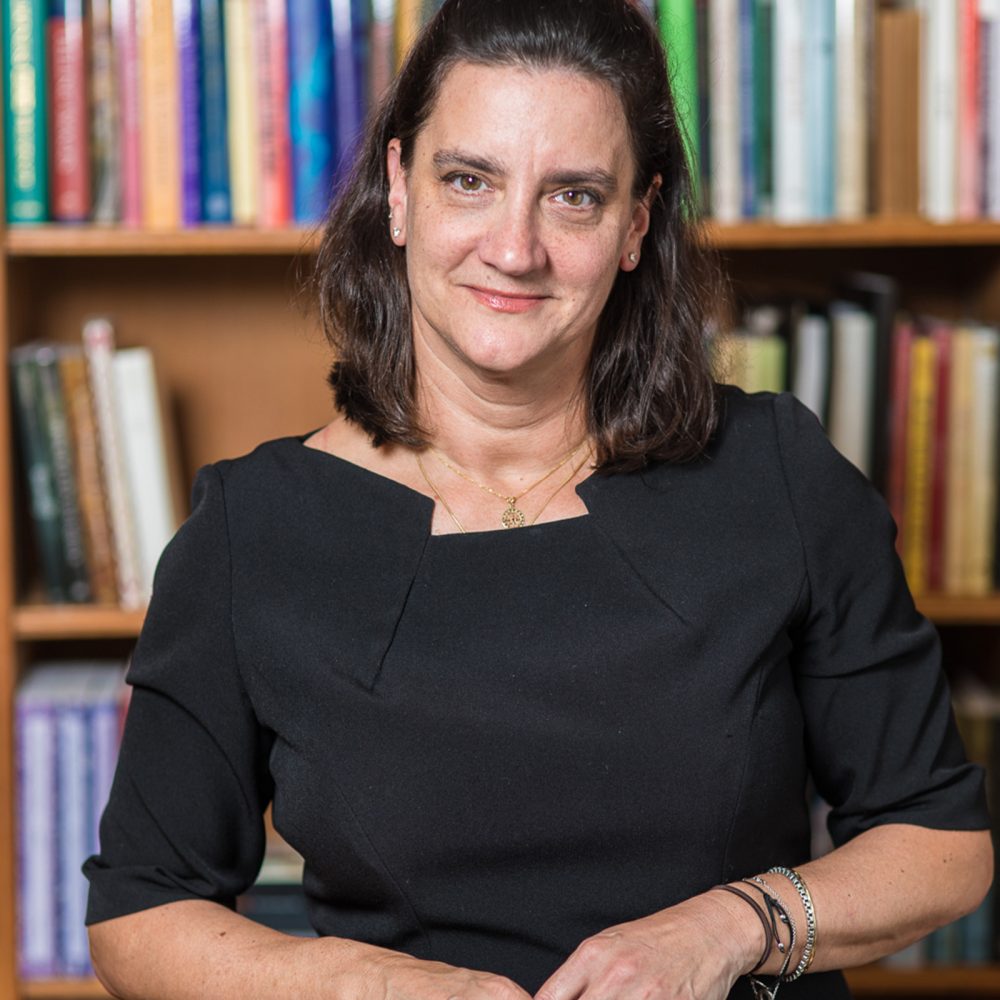
Institute for Advanced Study
Suzanne Conklin Akbari is Professor of Medieval Studies at the Institute for Advanced Study in Princeton, NJ. Her books are on optics and allegory (Seeing Through the Veil) and European views of Islam and the Orient (Idols in the East), and she’s also edited volumes on travel literature, Mediterranean Studies, and somatic histories, plus How We Write and How We Read. Her most recent book is The Oxford Handbook of Chaucer (2020), co-edited with James Simpson. A co-editor of the Norton Anthology of World Literature, Akbari co-hosts a literature podcast called The Spouter Inn.
Research related to commentary
Suzanne Akbari’s work draws upon commentaries on Plato, Boethius, and Ovid to investigate medieval theories of knowledge and change, and she has published two books (How We Write, 2015; How We Read, 2019) centering on the formation of affective communities around the page. Akbari has written about two commentary texts: Christine de Pizan’s Epistre Othea, a work of autocommentary that employs a creative mise-en-page format, and the anonymous commentaries on ekphrastic passages in Walter of Châtillon’s Alexandreis. She is also interested in the materiality of commentary, which informs her work within the Book and the Silk Roads research network.
Publications related to commentary
“Naming the Children of Jacob: The Shape of Negative Theology in the Benjamin Minor.” Listing: Medieval and Early Modern British Writing. Ed. Eva von Contzen and James Simpson. Columbus: Ohio State University Press [in press, to appear February 2021].
“One Loveheart Emoji at a Time: The Building of Affective Community in a Digital Medieval Studies Lab.” Digital Humanities Quarterly 14.3 (2020). Special issue, “Lab and Slack: Situated Research Practices in Digital Humanities,” ed. Mila Oiva and Urszula Pawlicka-Deger. [Senior author, with Lawrence Evalyn, C.E.M. Henderson, Julia King, Jessica Lockhart, and Laura Mitchell.]
“Ekphrasis and Commentary in Walter of Chatillon’s Alexandreis.” Special issue on “Theories and Practices of Commentary,” ed. Christina Lechtermann and Markus Stock. Zeitsprünge 24.1-2 (2020): 101-17.
“Seeing Jerusalem: Schematic Views of the Holy City, 1100-1300.” Aspects of Knowledge: Preserving and Reinventing Traditions of Learning in the Middle Age. Ed. Marilina Cesario and Hugh Magennis. Manchester: Manchester University Press, 2018. 116-41. [With Asa Simon Mittman].“Ovid and Ovidianism.” The Oxford History of Classical Reception in English Literature, Vol. 1: The Middle Ages. Ed. Rita Copeland. Oxford: Oxford University Press, 2015. 187–208.
Other publications
Idols in the East: European Representations of Islam and the Orient, 1100-1450. Ithaca: Cornell University Press, 2009; paperback edition 2012.
Seeing Through the Veil: Optical Theory and Medieval Allegory. Toronto: University of Toronto Press, 2004; paperback edition 2012.
A Sea of Languages: Rethinking the Arabic Role in Medieval Literary History. Ed. Suzanne Conklin Akbari and Karla Mallette. Toronto: University of Toronto Press, 2013
How We Write: Thirteen Ways of Looking at a Blank Page. Ed. Suzanne Conklin Akbari. Dead Letter Office. Brooklyn, NY: Punctum Books, 2015.
How We Read: Tales, Fury, Nothing, Sound. Ed. Kaitlin Heller and Suzanne Conklin Akbari. Dead Letter Office. Brooklyn, NY: Punctum Books, 2019.